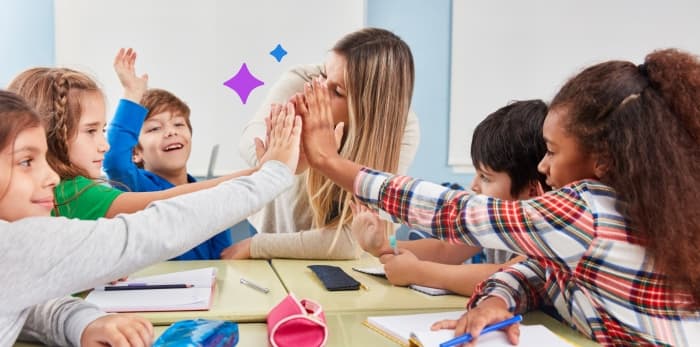Early childhood education plays a crucial role in laying the foundation for a child’s lifelong learning journey. While formal schooling begins later, learning starts at home from the moment a child is born. Fortunately, there are numerous resources, educational toys, games, and activities available to support early learning in a fun and engaging way. In this article, we’ll explore some effective resources and activities that parents can use to promote their child’s education and development at home.
- Interactive Learning Toys: Educational toys are a fantastic way to engage young children while supporting their cognitive, motor, and social skills development. Look for toys that are age-appropriate and focus on various learning objectives such as:
- Building blocks and shape sorters to enhance spatial awareness and problem-solving skills.
- Musical instruments and toys to encourage creativity and auditory discrimination.
- Puzzles and matching games to develop logical thinking and memory skills.
- Pretend play sets (e.g., kitchen sets, doctor kits) to foster imagination and social-emotional development.
- Storybooks and Reading Activities: Reading with young children not only promotes language development but also fosters a love for books and learning. Create a cozy reading corner in your home and regularly read age-appropriate storybooks together. Additionally, engage children in interactive reading activities such as:
- Asking open-ended questions to encourage critical thinking and comprehension.
- Acting out scenes from the story using props or puppets.
- Encouraging children to retell the story in their own words or create their endings.
- Visiting the local library for storytime sessions or borrowing books to explore a variety of topics.
- Hands-On Science Experiments: Introduce children to basic scientific concepts through hands-on experiments and explorations. Simple science experiments can be conducted using household items and encourage curiosity and inquiry. Try activities such as:
- Creating a volcano eruption using baking soda and vinegar to teach about chemical reactions.
- Growing plants from seeds to learn about plant life cycles and basic botany.
- Making slime or playdough to explore properties of matter and sensory play.
- Observing and recording changes in the weather to introduce meteorology and observation skills.
- Educational Apps and Online Resources: In today’s digital age, there is a wide range of educational apps, websites, and online platforms specifically designed for young children. These resources offer interactive games, videos, and activities aligned with early learning standards. When selecting educational apps and online content, consider factors such as:
- Age-appropriateness and educational content.
- Interactive features that engage children and promote active learning.
- Positive reinforcement and feedback to motivate children to continue learning.
- Parental controls and supervision to ensure safe and appropriate usage.
By incorporating these resources and activities into daily routines, parents can create a rich learning environment that supports their child’s early education and development. Remember that learning opportunities are everywhere, from exploring nature in the backyard to playing educational games indoors. With a bit of creativity and enthusiasm, parents can nurture their child’s curiosity, creativity, and love for learning from an early age.

